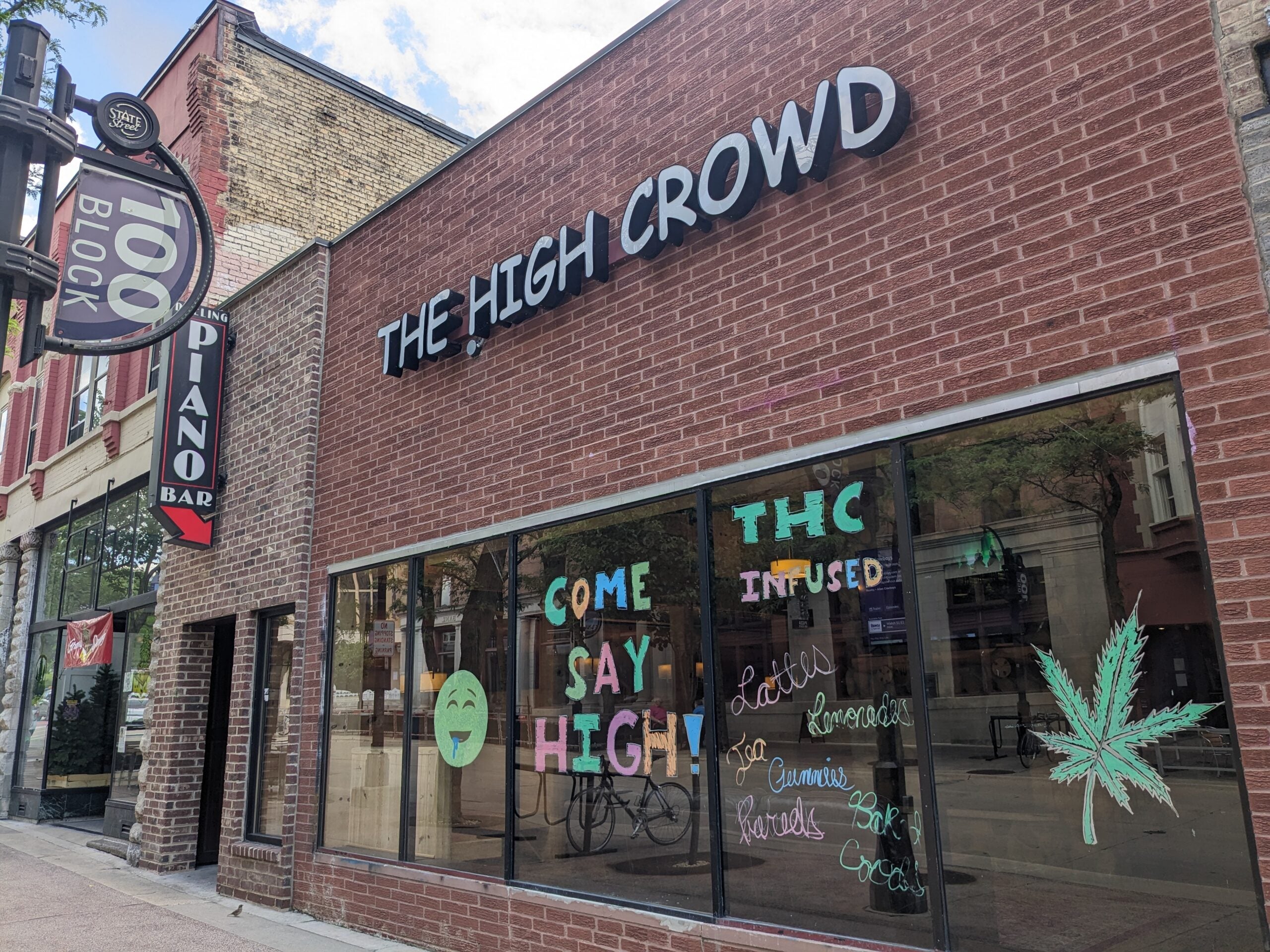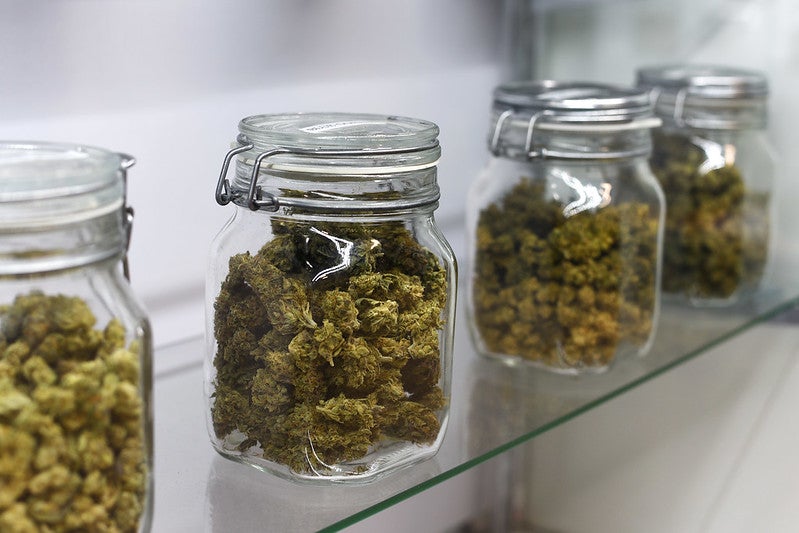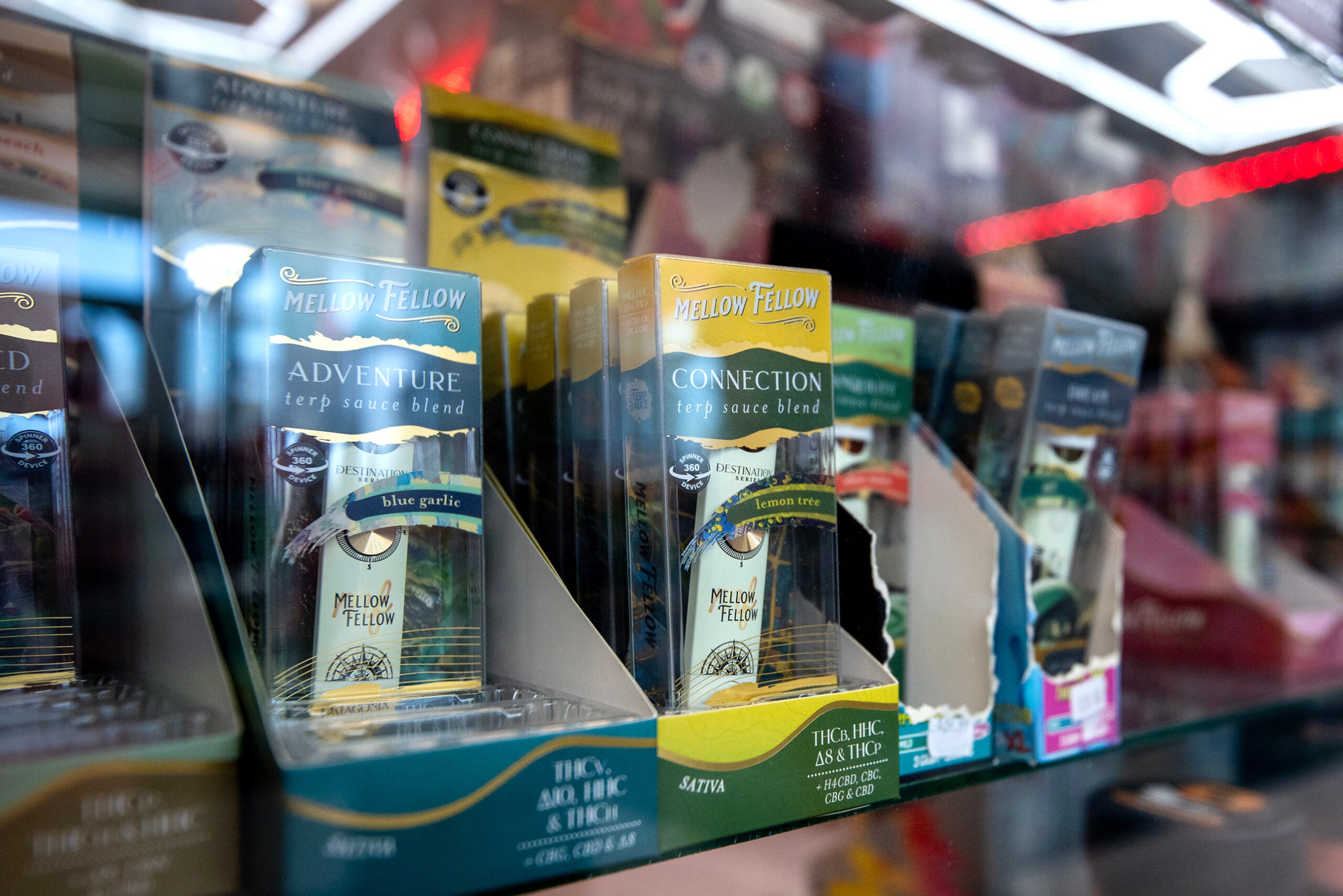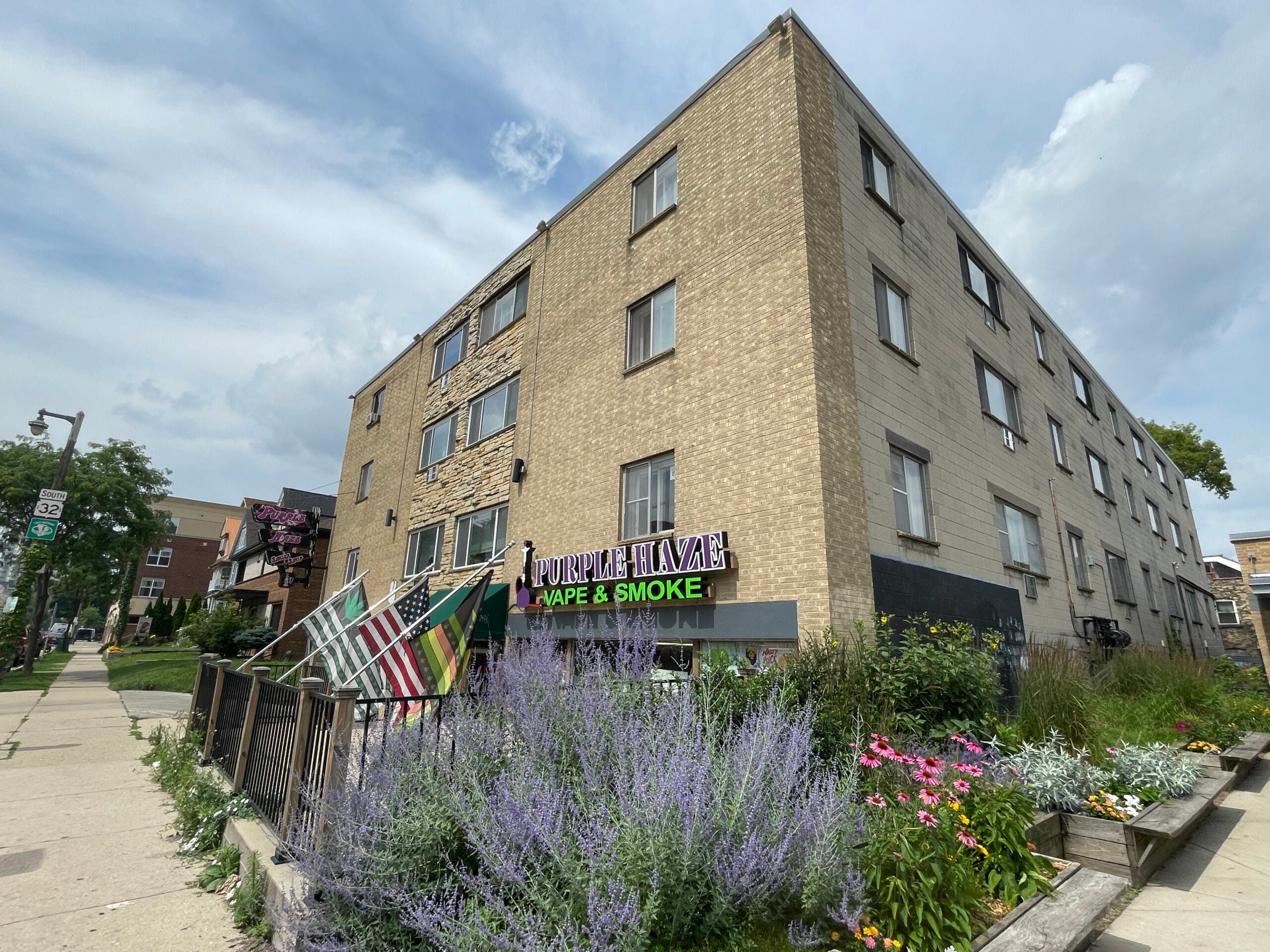CBD. THC-O. Delta-8. When it comes to marijuana alternatives available in Wisconsin, there’s a veritable alphabet soup of options.
But because marijuana itself is still illegal in the state, these products live in something of a regulatory “gray zone,” according to Lucas Richert.
“You almost need a Ph.D. in agriculture and maybe also a law degree to understand what’s happening here,” he joked in an interview with WPR’s “Wisconsin Today.”
News with a little more humanity
WPR’s “Wisconsin Today” newsletter keeps you connected to the state you love without feeling overwhelmed. No paywall. No agenda. No corporate filter.
Richert is a professor in the School of Pharmacy at the University of Wisconsin-Madison, where he researches the history of legal and illegal drugs, including cannabis.
He has been keeping a close eye on the latest developments as delta-8 and similar products have quickly grown into a multibillion-dollar industry.
If you’re wondering how these products are legal and why they seemed to appear overnight, it goes a little something like this: The farm bill of 2018 legalized the production of hemp, a cannabis plant that contains no more than 0.3 percent delta-9 THC. Delta-9 THC is the chemical that gives marijuana its intoxicating effect.
After the farm bill was passed, producers and business owners in Wisconsin quickly began to develop newly legal hemp-derived cannabis products like delta-8, which is said to have a “milder” effect than delta-9 THC.
“(Now you’ve) got all these hemp products that are federally legal, and they’re available all across the state of Wisconsin for all sorts of things,” Richert said. “You’ve got oils and tinctures, you’ve got soft gels, you’ve got edibles, you’ve got topicals (and) vape products, you’ve got personal care products. You can go into shops that are advertising ‘legal cannabis’ and get whatever you are desiring because of this hemp ‘gray zone.’”
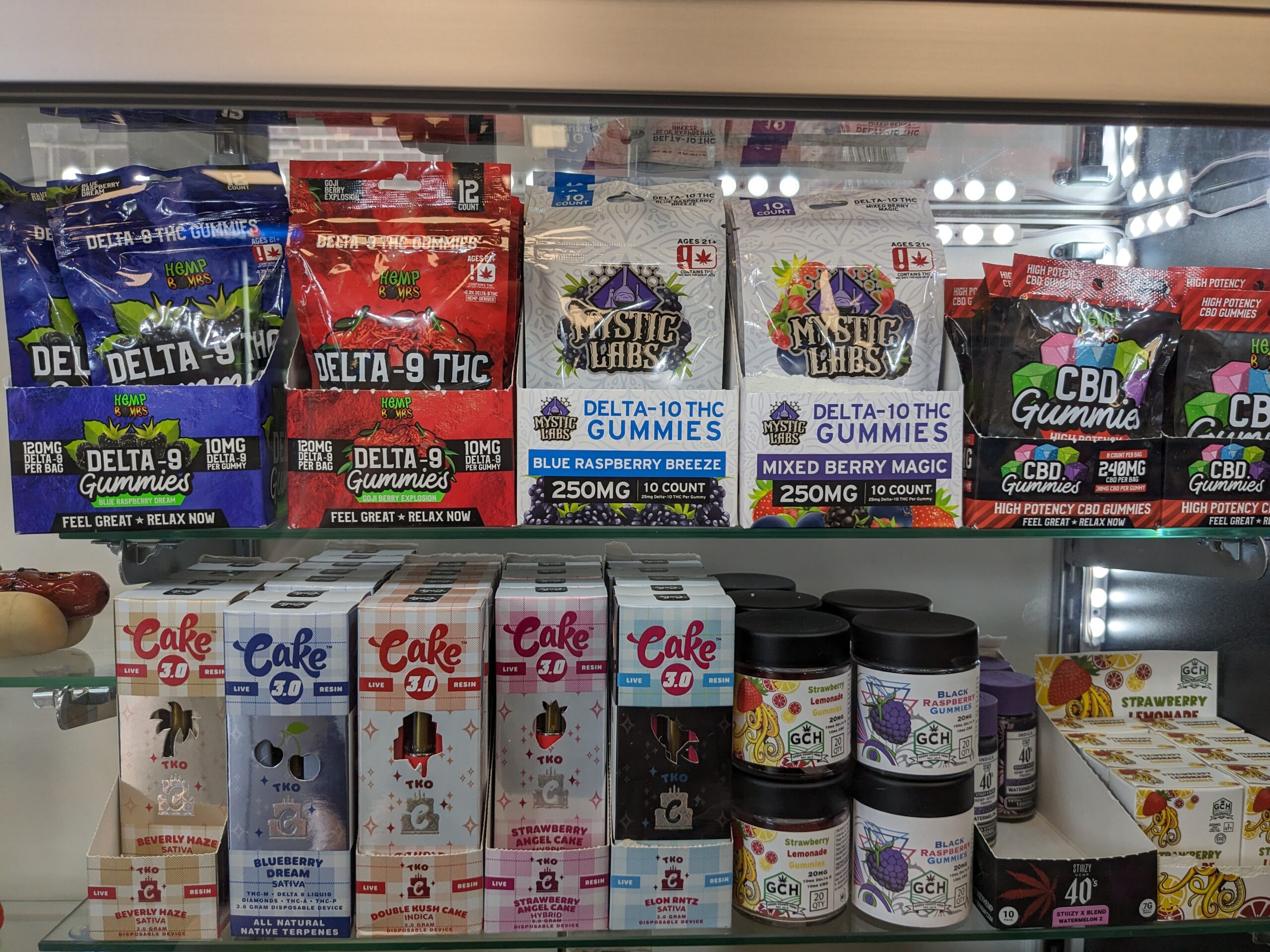
While hemp-based alternatives like delta-8 are welcomed by some consumers in Wisconsin, it can be difficult to know exactly what to expect from these products in terms of potency and safety.
“There are so many unknowns because of the Wild West that is hemp-derived products,” Richert said. “Consumers really have to do their homework.”
He said this can range from researching a given company and its certifications to talking with other people on platforms like Reddit, where consumers often swap advice about what works and horror stories about companies and products to avoid.
Some Wisconsinites choose to cross state lines and buy products they know they can trust in a neighboring state like Michigan or Illinois, where marijuana is legal and cannabis products are more heavily regulated.
“Legislators here really have to reckon with this lost revenue that could be put to good use in the state,” Richert said.
Earlier this year, Republicans in the state legislature proposed a bill that would legalize medical marijuana in Wisconsin. But even with strict limits on who was eligible to use medical marijuana and where it could be dispensed, the bill died in committee.
There has also been talk among Republicans in the Legislature about banning delta-8 and similar products, citing safety concerns. State Sen. Melissa Agard, D-Madison, and other Democratic lawmakers favor legalizing and regulating marijuana and hemp products.
Richert said there is still a lot of research to be done about cannabinoids in general and how they affect the body.
“There’s so much more to the (cannabis) plant that we don’t really understand,” he said.
And Richert believes it’s not just a question for the science community to investigate.
“Besides scientists grappling with what we don’t know, I think social scientists and politicians are also grappling with what the marketplace could and should look like in the years ahead,” he said.
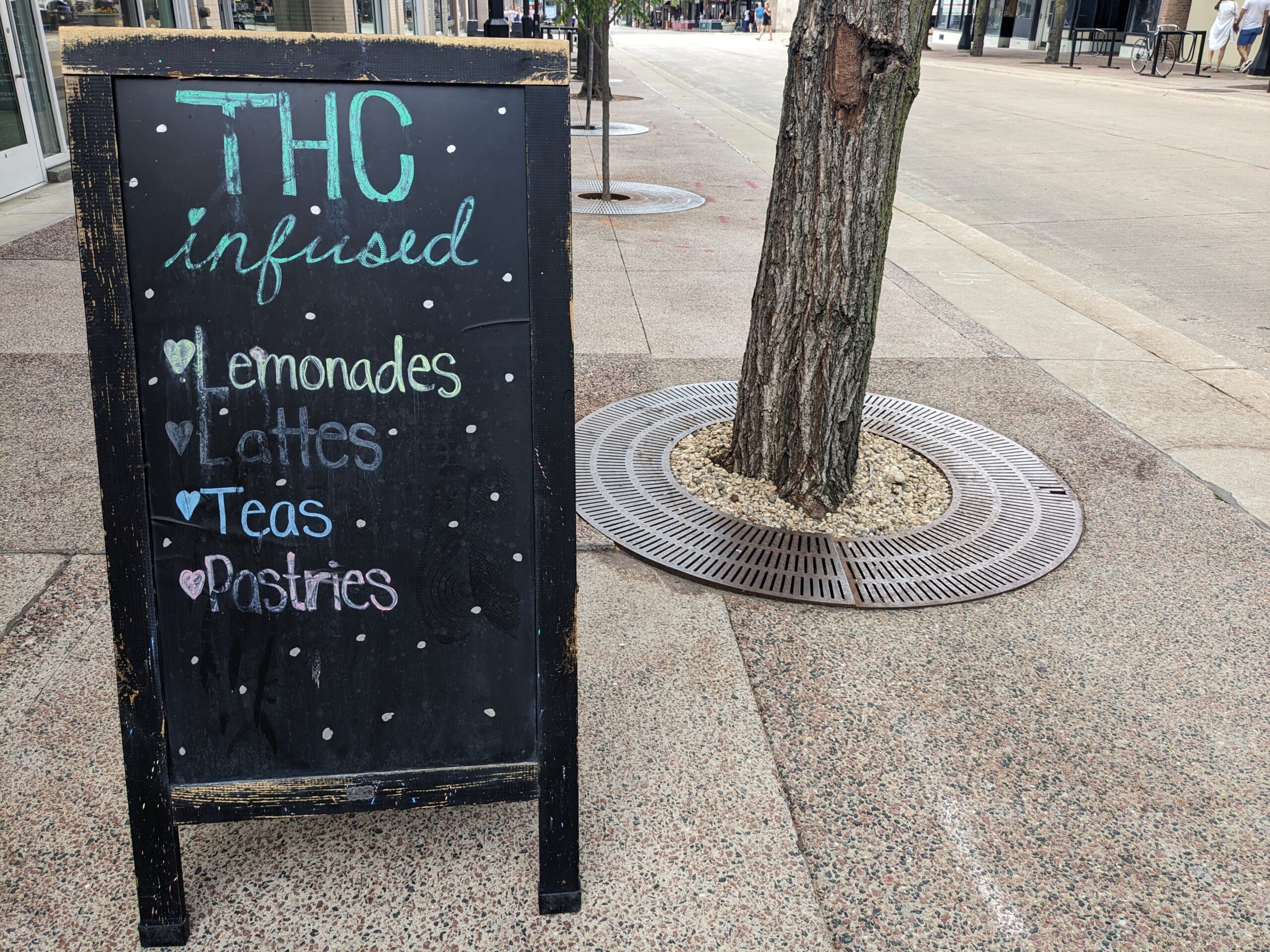
The story isn’t over yet for hemp-derived THC products. A proposed amendment to the 2024 farm bill would change the definition of hemp to only include naturally occurring and nonintoxicating uses for the plant, effectively shuttering the growing multibillion-dollar market for products like delta-8.
In the meantime, Richert is paying attention to whether Wisconsin moves closer to some level of legalization.
“At the state level, I’m going to be watching to see what our government is doing with medical cannabis and then with personal-use cannabis programs,” he said.

